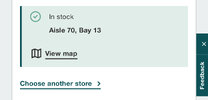Value Collector
Have courage, and be kind.
- Joined
- 13 January 2014
- Posts
- 12,237
- Reactions
- 8,483
What I mean is they are largely fixed, eg that business taking in $1000 a week probably spends about $50 a week in labour handling it, doing the banking etc, so around 5%, but adding $1 of sales in cash doesn’t increase that $50 really.I don't necessarily agree that Cash costs are largely fixed. In the case of large corporations yes, in the case of small business not necessarily. If you are a small business and you only take in for example $1000 of cash per week (because most people are paying by card) then the owner is most likely not going to pay Arma-Guard to come and collect the cash as its not worth it, he can just take the money to the bank himself once per week. However if the same business was taking in $20,000 of cash per week they would likely pay Arma-Guard to come and collect it.
There are also many small business paying staff (international students, backpackers, etc) in cash or the owners salary in cash so they don't even have to bank the cash.
If they double the cash to $2000, they probably still do the same bank run and change run, so still spend only $50 in labour, so the costs drop to 2.5%
In this case they may put up a sign saying “we prefer cash” because they want to put as many transactions into that $50 cost base as possible.
But yes if you increase the amount of cash significantly the cost will rise up to a new higher fixed base.
—————
But at some point if the volume of cash sales decreases, that $50 bank run or $500 armed guard becomes 30% or 50% of cost, so they might go cashless.

